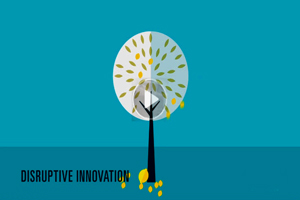Business & Life Hacks List
Business & Life Hacks Being happier at work What is disruptive innovation now? You’re already more persuasive than you think The new science of customer emotions Mindfulness As A Productivity…
Business & Life Hacks Being happier at work What is disruptive innovation now? You’re already more persuasive than you think The new science of customer emotions Mindfulness As A Productivity…
Emma Seppälä, author of The Happiness Track, explains the proven benefits of a positive outlook; simple ways to increase your sense of well-being; and why it’s not about being ecstatic or excited all the time. Audio IdeaCast available too.
 SARAH GREEN CARMICHAEL: Welcome to the HBR IdeaCast from Harvard Business Review. I’m Sarah Green Carmichael. Today, I’m talking with Emma Seppala, science director of Stanford’s Center for Compassion and Altruism Research and Education. She’s the author of the brand new book, The Happiness Track, How to Apply the Science of Happiness to Accelerate Your Success. Emma, thank you so much for talking with us today.
SARAH GREEN CARMICHAEL: Welcome to the HBR IdeaCast from Harvard Business Review. I’m Sarah Green Carmichael. Today, I’m talking with Emma Seppala, science director of Stanford’s Center for Compassion and Altruism Research and Education. She’s the author of the brand new book, The Happiness Track, How to Apply the Science of Happiness to Accelerate Your Success. Emma, thank you so much for talking with us today.
EMMA SEPPALA: Oh, you’re more than welcome. I’m happy to be here.
SARAH GREEN CARMICHAEL: So I thought we should just start by talking about how you define success in the purposes of the book because you started, I thought was really interesting, with a quote from late poet Maya Angelou, who actually was one of my all-time favorite interviews that we’ve done on the IdeaCast. That was a few years ago. But she stuck out in my mind.

The theory of disruptive innovation has proved to be a powerful way of thinking about innovation-driven growth. Here’s an excellent article and video about how it’s evolving.
 By Clayton M. Christensen, Michael E. Raynor, Rory McDonald
By Clayton M. Christensen, Michael E. Raynor, Rory McDonald
The theory of disruptive innovation, introduced in these pages in 1995, has proved to be a powerful way of thinking about innovation-driven growth. Many leaders of small, entrepreneurial companies praise it as their guiding star; so do many executives at large, well-established organizations, including Intel, Southern New Hampshire University, and Salesforce.com.
Unfortunately, disruption theory is in danger of becoming a victim of its own success. Despite broad dissemination, the theory’s core concepts have been widely misunderstood and its basic tenets frequently misapplied. Furthermore, essential refinements in the theory over the past 20 years appear to have been overshadowed by the popularity of the initial formulation. As a result, the theory is sometimes criticized for shortcomings that have already been addressed. (more…)